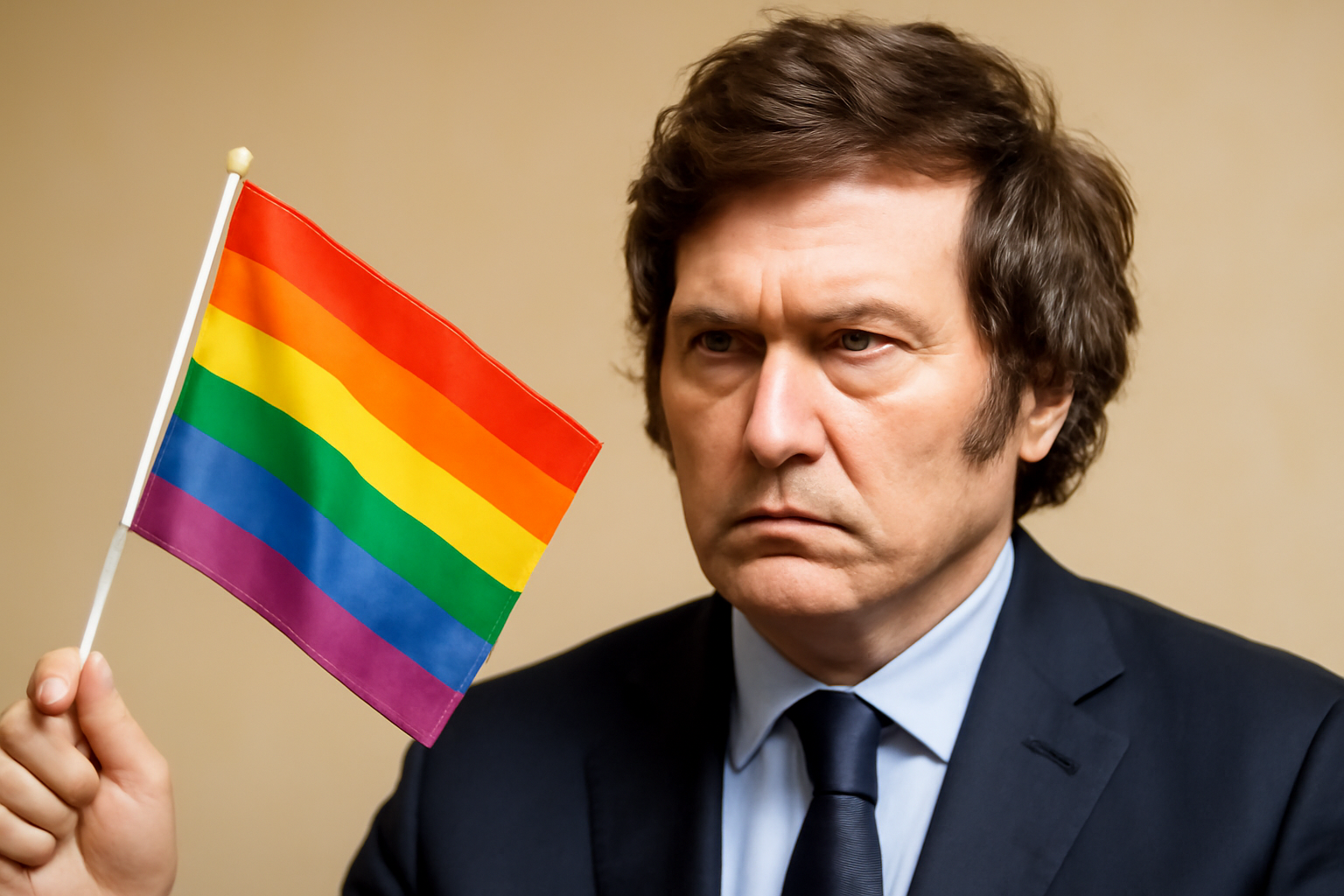
Introduction
The election of Javier Milei as president has ushered in significant shifts in Argentina's political landscape, profoundly affecting the country's LGBTQ community. Milei's initial year in office has been characterized by both rhetoric and policies that have rolled back previous advancements in human rights for the LGBTQ population.
Policy Changes and Impact
During his first year, President Milei's administration has both symbolically and practically challenged LGBTQ rights. Esteban Paulón, a veteran LGBTQ activist and congressman, has been vocal about these changes. "The Milei administration is waging a dual battle," he explains. "On one front, there is the symbolic assault with a narrative that is openly hostile to LGBTQ individuals. On the other, there are tangible actions, such as the dissolution of the Ministry of Women, Gender and Diversity, alongside the closure of INADI (the National Institute Against Discrimination, Xenophobia, and Racism)."
The dismantling of these critical institutions has sent a stark signal that diversity policies are no longer a government priority. Consequently, LGBTQ Argentines have found themselves without the national advocacy mechanisms that once offered protection and support.
While some provinces have attempted to counterbalance this void, others have aligned with the national government's direction. This alignment has further heightened the vulnerability of LGBTQ individuals across the country.
Effects on Employment and Legal Protections
One of the Milei administration’s controversial moves has been the cessation of legal protections against discriminatory firings. As Congressman Paulón warns, "Individuals can now be terminated from their jobs because of their sexual orientation or gender identity, with no legal recourse available to them." This policy shift has particularly affected transgender people, exacerbating employment disparities in an already marginalized community.
Moreover, the suspension of a labor quota specifically benefiting transgender individuals has worsened employment inequities. Advocacy groups report that some businesses have exploited these regulatory changes to execute selective firings based on gender identity or sexual orientation.
Public Rhetoric and Social Climate
According to Paulón, the anti-LGBTQ rhetoric emanating from Milei and his administration has permeated Argentine society. "Now, people feel emboldened to express discriminatory views without fear of reprisal," he observes. While ultraconservative and religious factions view Milei's government as an ally, Paulón notes that this rhetoric has not yet escalated into widespread violence.
"We are not experiencing systematic violence akin to other countries, but the possibility exists," Paulón cautions. "Every hateful word from those in power risks legitimizing violent actions."
Resistance and Resilience
Despite these challenges, resistance efforts continue to gain momentum. Paulón, alongside other opposition lawmakers, has been drafting legislation to safeguard LGBTQ rights and counteract the regressive measures taken by the Milei administration.
"We refuse to remain passive," Paulón asserts. "We are presenting detailed proposals to ensure access to healthcare, promote inclusive education, and secure labor protections for all."
Additionally, activists have fortified their networks with counterparts in neighboring countries, such as Brazil, Chile, and Mexico. They are also establishing collaborations with international organizations concerned about the developments in Argentina.
Outlook and Hope
While the current outlook may seem bleak, Paulón remains optimistic about the future. "Milei’s tenure will eventually conclude, as is the case with all democratic processes," he reflects.
Paulón emphasizes that marriage equality and the transgender rights law are deeply entrenched within Argentine society, serving as bulwarks against further erosions of rights. The key, he believes, is to sustain resistance, organize the community, and reinforce international alliances.
"We possess an organized movement, tools for self-defense, and a largely pluralistic and diverse society," Paulón concludes. "This phase will pass, and the continued struggle for LGBTQ rights in Argentina serves as a poignant reminder that social victories are never permanent and that resistance is essential to maintain and protect hard-won achievements."
Related Posts
Finding a Community in Unexpected Places: A Personal Journey Through Texas
On my latest business trip down in Texas, it felt like everything that could go wrong did. It all started with my flight from Los Angeles, which got hit with major delays. I ended up missing my connecting flight in Dallas, and it took a full day before I finally made it all weary and worn out in McAllen. I tried chalking it up as one those typical travel mishaps, but I couldn't help but wonder if [...]
Jonathan Bailey's 'Chic Glasses' Steal the Spotlight in Jurassic World Rebirth
Jonathan Bailey's fashion choice dazzles in Jurassic World Rebirth Fans can't wait any longer—the latest installment in our beloved Jurassic franchise, *Jurassic World Rebirth*, hits theaters soon. And guess what? It's not just about dinosaurs this time. Jonathan Bailey, whom we adore from *Bridgerton*, steps up as Dr. Henry Loomis, a charismatic paleontologist. But what's stealing his thunder? [...]
Martha Graham Cracker: A Night of Electrifying Drag Performance in Atlantic City
Experience a night like no other: Martha Graham Cracker's rock n' roll drag cabaret Get ready, because Martha Graham Cracker's about set Atlantic City's Anchor Rock Club on fire with her electrifying drag cabaret. With a voice that commands attention and a stage presence that's both vibrant and mesmerizing, she blends rock and roll with drag like nobody else. If you're itching a night jam-packed [...]